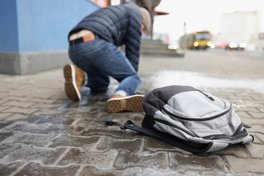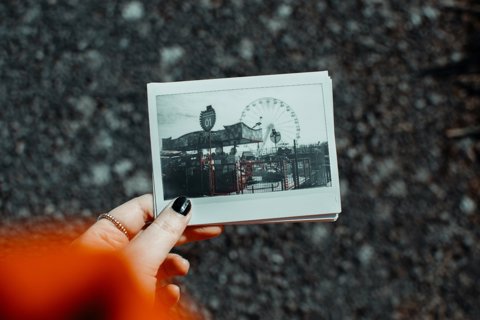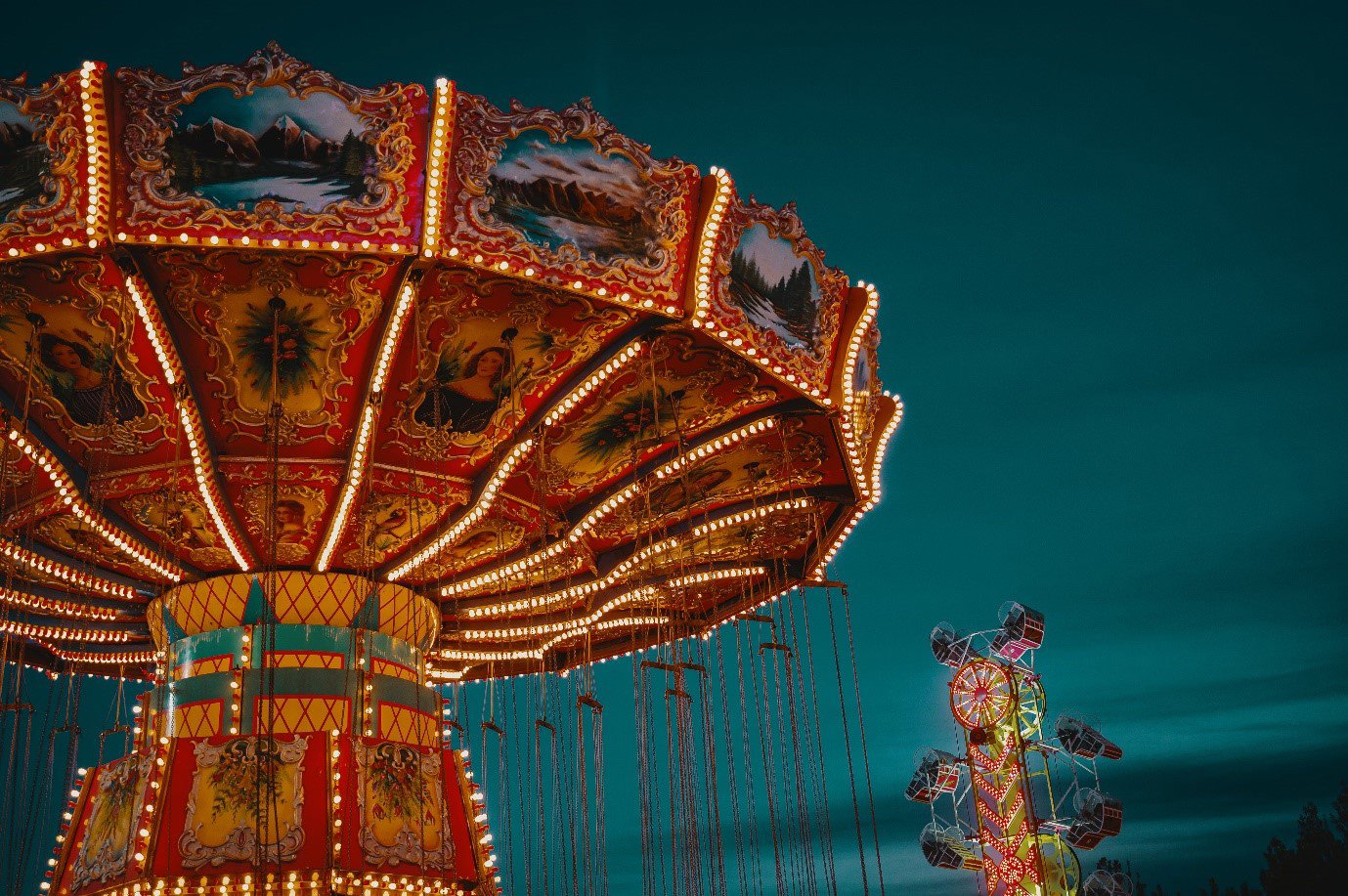Details of the Incident
16-year old Chloe Price from Bury was attending the Heaton Park Bonfire Night event with a group of close friends on November 5th, 2019, where she joined a large group of people waiting to take a turn on the Waltzer ride.
Unable to identify any clear queuing system Chloe and her friends say that they simply became a part of the growing crowd which waited for the end of each session before moving onto the platform in a bid to find a spare cart.
After a number of unsuccessful attempts to find a seat, Chloe was instructed by staff to stand directly next to the ride platform, at which point she collapsed and suffered a seizure.
Unconscious, her friends say she then slid down the sloped side of the ride where her head landed under the rapidly moving platform before she was pulled free as members of the public called on the operators to stop the ride.
She was later taken to North Manchester Hospital by paramedics and was treated for a serious laceration to her eye which required surgery, as well as a head injury which has resulted in brain damage. Investigations are ongoing with regards to the extent of the brain injury sustained.
Following the Incident
A year on from the incident, Chloe, who has since been diagnosed with epilepsy, still suffered as a result of the injuries she sustained that night, including headaches, fatigue and dizzy spells.
Her family appointed Simpson Millar Solicitors to help investigate the circumstances surrounding her fall and whether more could have been done to prevent her injuries.
As part of the process the law firm has contacted the Council, as well as the Waltzer ride operative which has replied to dispute Chloe’s version of events claiming that there was a queuing system in place, and that it isn’t possible that her head was able to fit under the ride.
They have even suggested that Chloe’s injuries were only minor.
Personal Injury Lawyers from Simpson Millar said, “This has been a terribly traumatic time for Chloe and her family.
“The injuries she sustained on the night of November 5th while at the fairground have had a significant and lasting impact on her life at a time when she should have been focused on preparing for her exams and her future.
“If anyone was present that night and remembers seeing Chloe collapse, or just generally has information about the Waltzer ride and how the crowds and the queues were managed we would really like to hear from you.”
"While Chloe’s friends have given her some information about what happened when she was knocked unconscious, the Waltzer operatives are disputing the chain of events and she is understandably desperate for some answers and clarification."

How to Claim Compensation Following an Accident
In this next section, we’ll explore how the process works when it comes to claiming compensation following an accident at a fairground. You’ll learn everything you need to know about the responsibilities of the fairground operator, how to claim on behalf of a child, what you may be able to claim for, and much more.
Duty of Care
If you have suffered an accident at a fairground, you may be able to claim compensation. To do this, you’ll need to prove that you were owed a duty of care by the defendant, that the defendant’s negligence led to the accident, and you were injured as a result of their actions.
In law, anyone who visits a fairground is owed a duty of care by the operator, so you don’t have to worry about proving this. But you will need to focus on proving that the defendant was negligent, and their actions caused your injuries.
Claiming on Behalf of a Child
Your child can’t make a Personal Injury Claim themselves until they reach 18 years old. Before they turn 18, you can start a claim on their behalf. If you don’t wish to do this, your child can later choose to claim compensation as an adult, and they will have up until they are 21 years old to do so.
Examples of Accidents at a Fairground
While fairground rides are subject to regular testing and maintenance, because of the speed, there will always be some form of risk of an accident occurring if certain health and safety procedures aren’t followed.
Here are some examples of accidents that have happened at a fairground:
- Falling from a ride
- Whiplash
- Slipping out of the harness
- Trapped at the top of a ride due to a breakdown
- Accidents due to strong winds
- Slipping on spillages
- Struck by items falling from a ride overhead
Regardless of what type of injury you sustained, if the fairground operator was negligent, you can claim for compensation.
Examples of Negligence at a Fairground
As we’ve established, you can usually only claim compensation if the defendant was negligent. Here are some examples of what forms of negligence may occur at a fairground:
- A ride not being erected or built correctly
- Damaged seating
- Poor staff training
- Poor supervision of staff
- Unmaintained rides
- Inadequate safety tests
- No safety barriers or inadequate barriers
Financial Compensation – How Much You Can Claim
When you provide all the details of your case with your solicitor, they will be able to give you an indication of how much compensation you may be able to claim.
If your claim for compensation is successful, you could be awarded an amount to cover the following:
- Loss of earnings
- Physical pain and suffering
- Mental health issues such as PTSD and anxiety
- Medical expenses
- Travel expenses
- Replacement of clothing or belongings
- Cost of a carer
- Rehabilitation
- Adaptations to your home or vehicle
If we take your claim on, we’ll work hard to secure the best possible outcome for you, to help you recover from your injuries.
Providing Evidence
A major part of your claim will be providing evidence that shows the defendant was negligent and their actions caused your accident and injury. Your solicitor will try to gather all the evidence that’s required to help prove how the accident happened, who was responsible, and the injuries that were sustained.
While your solicitor can seek out and access a lot of evidence, you can also help by collecting as much as possible.
If you attended a hospital, such as A&E, at the time of the accident, there will be a medical report on your injuries and assessments that they made at the time. These records can help to prove the true extent of your condition and injuries.
It will also help your case if you reported it to the staff. Legally, it would then have to be recorded in an accident report book and they should have then reported it to the Health and Safety Executive. You can request a copy of this report to help show the date, time, and location of the accident.
If anyone happened to video the accident or take photos at the time you were injured, ask them to provide you with a copy. If possible, it would also help your claim if you were able to photograph any defects of the ride that caused the accident.
If no-one happened to catch the accident on video, you may be able to get copies of a CCTV recording. Some fairgrounds are monitored by CCTV, so it would be worth checking with the staff to see if your accident was recorded.
The great thing about fairgrounds is that they are busy places, which mean there will be a lot of witnesses. Collect the contact details of everyone nearby who saw what happened, in case you would like to ask them for a witness statement at a later date.
Start Your Claims Process
If you have suffered an injury from an accident at a fairground, please contact our team today. We’ll discuss your case in detail and provide you with legal advice, so you know your options. If we think your claim is strong enough and that it’ll be successful, we’ll let you know.
You may also be able to manage the claim on a No Win No Fee basis, which means that you don’t have to pay a single penny towards legal fees unless your claim is successful. Contact our expert solicitors today for a free consultation to find out what your next steps are.






